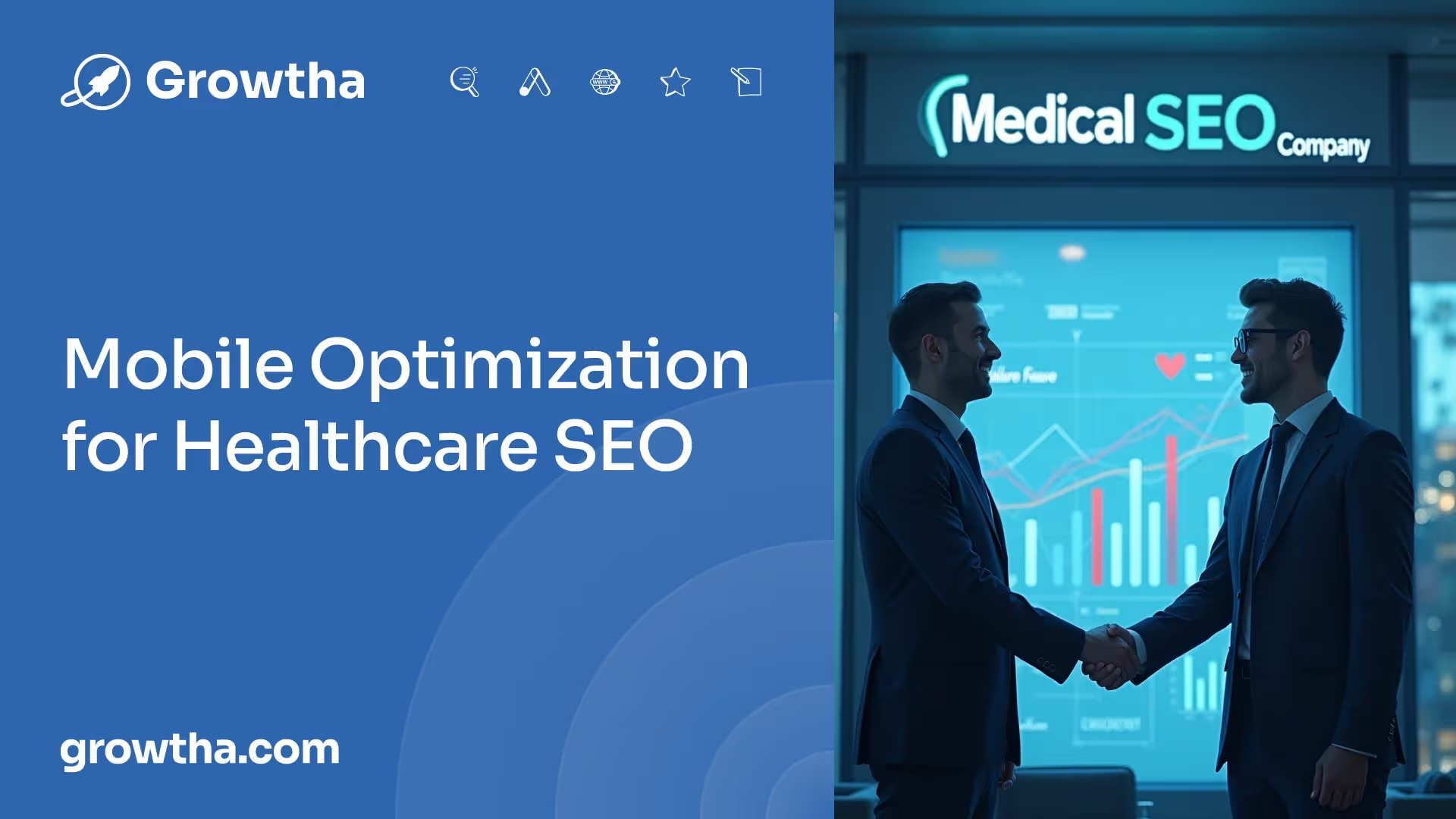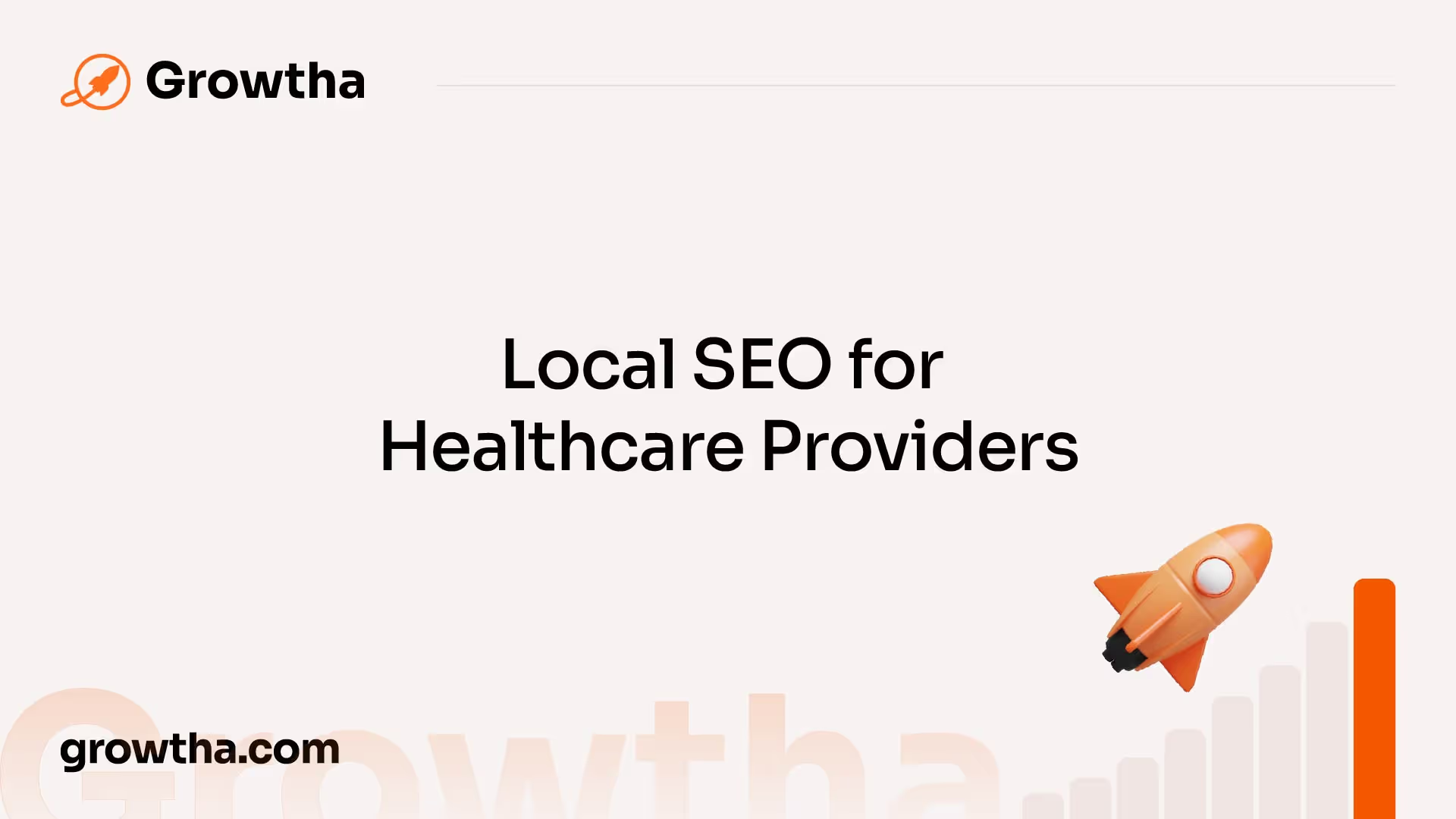The Potential of Healthcare SEO Optimization
is crucial for doctors and healthcare providers looking to grow their business locally and attract new patients.


The Potential of Healthcare SEO Optimization
Healthcare SEO Optimization
In the ever-evolving digital landscape, healthcare professionals need to embrace the power of SEO (Search Engine Optimization) to enhance their online presence and connect with patients effectively. Healthcare SEO optimization involves optimizing a website to improve its rankings in search engine results pages (SERPs) for keywords and search queries related to the medical field [1].
Importance of Healthcare SEO

SEO is crucial for doctors and healthcare providers looking to grow their business locally and attract new patients. It plays a fundamental role in improving the visibility of a doctor's website and driving more traffic to their online platforms. By implementing effective SEO strategies, healthcare professionals can increase their online reach, attract a broader audience, and generate more patient inquiries and appointments. A robust online presence has become essential for healthcare practitioners to connect with patients effectively in today's digital era [3].
Components of Healthcare SEO
To unleash the potential of healthcare SEO optimization, it's essential to understand the key components that contribute to its success. These components are designed to transform digital strategies, optimize content, and harness the latest SEO techniques for healthcare professionals. Here are seven essential components for healthcare SEO:

By implementing these components effectively, healthcare professionals can elevate their online reach, attract more patients, and establish a strong digital presence within the healthcare industry.
SEO for healthcare websites comes with its own set of unique challenges. Aligning complex medical content with user-friendly language, maintaining medical accuracy, and adhering to Google's YMYL (Your Money or Your Life) guidelines, which demand high levels of expertise, authority, and trustworthiness (EAT), are critical considerations [1].
With the global prevalence of health-related searches on Google, healthcare SEO optimization presents an opportunity for healthcare professionals to connect with patients actively seeking healthcare solutions online. By implementing effective SEO strategies and staying up-to-date with the latest industry updates, healthcare professionals can enhance their online visibility, attract a wider audience, and ultimately provide better healthcare solutions to those in need.
Mobile Optimization for Healthcare SEO

In today's digital landscape, mobile optimization plays a crucial role in healthcare SEO. With the increasing use of mobile devices for online searches, it is essential for healthcare websites to prioritize mobile responsiveness and page speed to enhance their online reach and visibility.
Mobile-Responsive Websites
Search engines prioritize mobile-responsive websites, enhancing their visibility and rankings in mobile search results. User behavior is significant, as users tend to bounce off non-mobile-friendly sites, affecting engagement metrics and potentially reducing search rankings.
A responsive web design allows healthcare websites to adapt seamlessly to various screen sizes, ensuring that visitors can easily navigate the content without zooming or scrolling excessively. This is critical for mobile users who make up a significant portion of online traffic [5].
Page Speed for Mobile
Improving page speed for mobile is vital for healthcare websites. By enhancing page loading times on mobile devices, websites can significantly improve user satisfaction, reduce bounce rates, and increase the likelihood of achieving better mobile SEO performance and visibility in search results.
Google ranks websites based on various factors, including website speed, security, and mobile-friendliness. It is ideal for a website to load in under half a second for the best user experience. Slow loading times can lead to high bounce rates, impacting search engine rankings negatively, so prioritizing fast loading times is crucial for healthcare websites [5].
By focusing on mobile optimization, healthcare websites can improve their overall SEO performance and ensure that they provide a seamless and user-friendly experience to mobile users. This, in turn, can result in higher visibility, increased traffic, and improved engagement metrics for healthcare providers in the digital landscape.
Local SEO for Healthcare Providers

In the realm of healthcare SEO optimization, local SEO plays a crucial role in attracting patients from the local community. By optimizing a healthcare provider's online presence for location-based queries, they can effectively target and engage with their local audience. Let's explore two key aspects of local SEO for healthcare providers: attracting local patients and leveraging location-based queries.
Attracting Local Patients
To attract local patients, healthcare providers need to ensure that their online presence is optimized for local search. This involves incorporating location-specific keywords into website content, metadata, and online listings. By including relevant location information, providers can increase their visibility when potential patients search for medical services in their area.
Creating location-specific pages on the website can also be beneficial. These pages can highlight specific services offered at each location, showcase testimonials from local patients, and provide information about the provider's involvement in the community. This localized content helps to establish trust and credibility among local patients, increasing the likelihood of them choosing the healthcare provider.
Additionally, having a strong online presence is crucial in today's digital age. Over 60 percent of consumers search online before scheduling an appointment, emphasizing the importance of maintaining a personal website and accounts on social media and review pages. By actively engaging with patients through these channels, providers can build relationships and foster trust, ultimately attracting more local patients.
Location-Based Queries
When potential patients search for medical services, they often include location-specific keywords in their query. Healthcare providers can leverage this by optimizing their website to rank well for these location-based queries. Incorporating relevant keywords in the website's content, meta tags, and headings can help improve visibility in search engine results.
It's also important to ensure that the website is mobile-friendly. With the majority of local searches now happening on mobile devices, having a mobile-responsive website is crucial for local SEO success. Mobile-responsive websites adapt to different screen sizes, providing a seamless user experience for patients using smartphones or tablets.
By optimizing their online presence for local search, healthcare providers can increase their visibility among potential patients in their community. Through targeted content, location-specific keywords, and a mobile-responsive website, providers can effectively attract local patients and grow their practice.
Lead Generation Strategies for Healthcare

In the competitive world of healthcare, implementing effective lead generation strategies is essential to attract and convert potential patients. By optimizing lead response and utilizing effective communication techniques, healthcare providers can significantly increase their chances of converting leads into loyal patients.
Importance of Lead Response
When it comes to lead generation, response time plays a critical role in success. According to Textline, quickly responding to inbound leads can increase the chances of qualifying them by 60 times. Timely and efficient follow-up demonstrates professionalism and care, instilling confidence in potential patients.
To ensure prompt lead response, healthcare providers should utilize tools such as automated email responders or chatbots. These tools can provide immediate acknowledgment to inquiries, assuring leads that their message has been received. Additionally, having a dedicated team or individual responsible for lead management can help streamline the response process and ensure no leads are left unattended.
Communication for Lead Conversion
Effective communication is vital for converting leads into patients. Utilizing multiple forms of communication, such as phone calls, text messages, and emails, can significantly increase the chances of lead conversion. According to Textline, using multiple communication channels can result in 47.7 percent more leads converting into customers.
When communicating with leads, it's important to be responsive, empathetic, and informative. Answering their questions, addressing their concerns, and providing personalized information can help build trust and establish a strong connection. Additionally, healthcare providers should emphasize the value they can offer, highlighting the benefits of choosing their services.
Implementing customer relationship management (CRM) software can also aid in effective communication and lead tracking. CRM tools can help healthcare providers track interactions with leads, set reminders for follow-ups, and analyze data to improve lead conversion rates.
By prioritizing lead response and employing effective communication strategies, healthcare providers can maximize their lead generation efforts and improve their chances of attracting and converting potential patients. These strategies, when implemented consistently and with a patient-centric approach, can help healthcare practices thrive in today's competitive landscape.
Online Presence for Healthcare Professionals

In today's digital era, having a strong online presence has become essential for healthcare professionals. A robust online presence allows healthcare practitioners to effectively connect with their patients and attract new leads. Let's explore the importance of online presence and the role of patient reviews in healthcare SEO optimization.
Importance of Online Presence
Having an optimized online presence is crucial for healthcare professionals as an increasing number of consumers turn to the internet for healthcare information and services. In fact, over 60 percent of consumers search online before scheduling an appointment. By establishing a strong online presence, healthcare professionals can position themselves as trusted authorities and make it easier for potential patients to find and connect with them.
A comprehensive online presence typically includes a personal website, accounts on social media platforms, and participation in review pages. These online channels provide healthcare professionals with the opportunity to showcase their expertise, share valuable information, engage with patients, and build a strong online reputation. By maintaining an active and informative online presence, healthcare professionals can increase their visibility, credibility, and ultimately attract more patients.
Patient Reviews
Patient reviews play a pivotal role in healthcare SEO optimization. In fact, 75 percent of Americans read online patient reviews before scheduling a medical appointment [7]. These reviews provide valuable insights into the experiences of previous patients and help potential patients make informed decisions regarding their healthcare provider.
Positive patient reviews act as powerful testimonials, showcasing the quality of care and patient satisfaction. They help build trust and confidence in potential patients, encouraging them to choose a particular healthcare professional. On the other hand, negative reviews can have a detrimental impact on a healthcare professional's online reputation. It is crucial for healthcare professionals to actively monitor and respond to patient reviews, addressing any concerns or issues raised.
Encouraging satisfied patients to leave reviews and testimonials can be an effective strategy to enhance online presence and attract new patients. Healthcare professionals can utilize various platforms, such as their website, social media accounts, and email newsletters, to request patient feedback and encourage them to share their experiences. By actively managing patient reviews, healthcare professionals can build a positive online reputation and increase their chances of attracting new patients.
In summary, a strong online presence is essential for healthcare professionals to connect with patients effectively in today's digital landscape. An optimized online presence, coupled with positive patient reviews, can significantly contribute to increased patient inquiries, appointments, and a broader reach within the community. By leveraging the power of online presence and patient reviews, healthcare professionals can unleash the full potential of healthcare SEO optimization.
SEO Strategies for Doctors
To effectively reach and connect with patients in the digital landscape, doctors need to implement SEO strategies tailored to their healthcare practice. Two key areas to focus on are local SEO and content optimization.
Local SEO for Doctors
Local SEO plays a vital role in helping doctors grow their practice locally and attract new patients. By optimizing their website for local search, doctors can improve their online visibility and attract more traffic. Including location-specific keywords in website content is crucial for attracting local patients searching for medical services in their area.
To enhance local SEO, doctors should consider the following strategies:
- Google My Business: Claim and optimize the Google My Business listing to ensure accurate and up-to-date information is displayed when potential patients search for doctors in their area. This includes providing the practice name, address, phone number, and opening hours.
- Local Directories: Ensure the practice is listed in relevant local directories, such as online directories, healthcare directories, and industry-specific directories. Consistency in NAP (Name, Address, Phone Number) across these listings is essential for search engine recognition.
- Location-Specific Pages: Create dedicated landing pages on the website for each location or area served by the practice. These pages should include relevant information about the services provided in that specific location, along with testimonials and patient reviews.
Content Optimization for Doctors
Content optimization is another critical aspect of SEO for doctors. Developing informative and relevant content based on appropriate medical keywords is essential for optimizing a healthcare website and improving its search engine visibility [6]. Here are some content optimization strategies for doctors:
- Keyword Research: Conduct thorough keyword research to identify the terms and phrases patients commonly use when searching for medical information or healthcare providers. Focus on long-tail keywords and incorporate them naturally into website content, blog posts, and articles.
- Informative Blogging: Maintain an active blog on the website to provide valuable information to patients. Write blog posts addressing common health concerns, explaining medical procedures, or sharing insights on current healthcare topics. This helps establish expertise, increase website traffic, and attract potential patients.
- Patient Testimonials: Encourage satisfied patients to leave reviews and testimonials on the website. Positive online reviews on popular search engines and review sites can significantly improve a doctor's online presence and attract more patients [6].
- Video Content: Utilize video content to engage patients and provide informative material. Videos can be used to explain medical procedures, answer frequently asked questions, or share patient success stories. Optimizing video content with relevant keywords and transcripts can enhance search engine visibility.
By implementing effective local SEO strategies and optimizing website content, doctors can elevate their online presence, attract more patients, and establish themselves as trusted healthcare providers in the digital realm.
References
[1]: https://www.growth.pro/blog/healthcare-seo
[2]: https://www.demandhub.co/articles/doctor-seo
[3]: https://simplifiedseoconsulting.com/what-is-seo-in-healthcare-healthcare-seo
[4]: https://www.digitalauthority.me/resources/mobile-seo-optimize-healthcare-sites/
[5]: https://patientcaremarketingpros.com/articles/top-urgent-care-seo-tips-for-mobile-optimization/
[6]: https://www.demandhub.co/articles/doctor-seo/
[7]: https://www.textline.com/blog/healthcare-lead-generation







